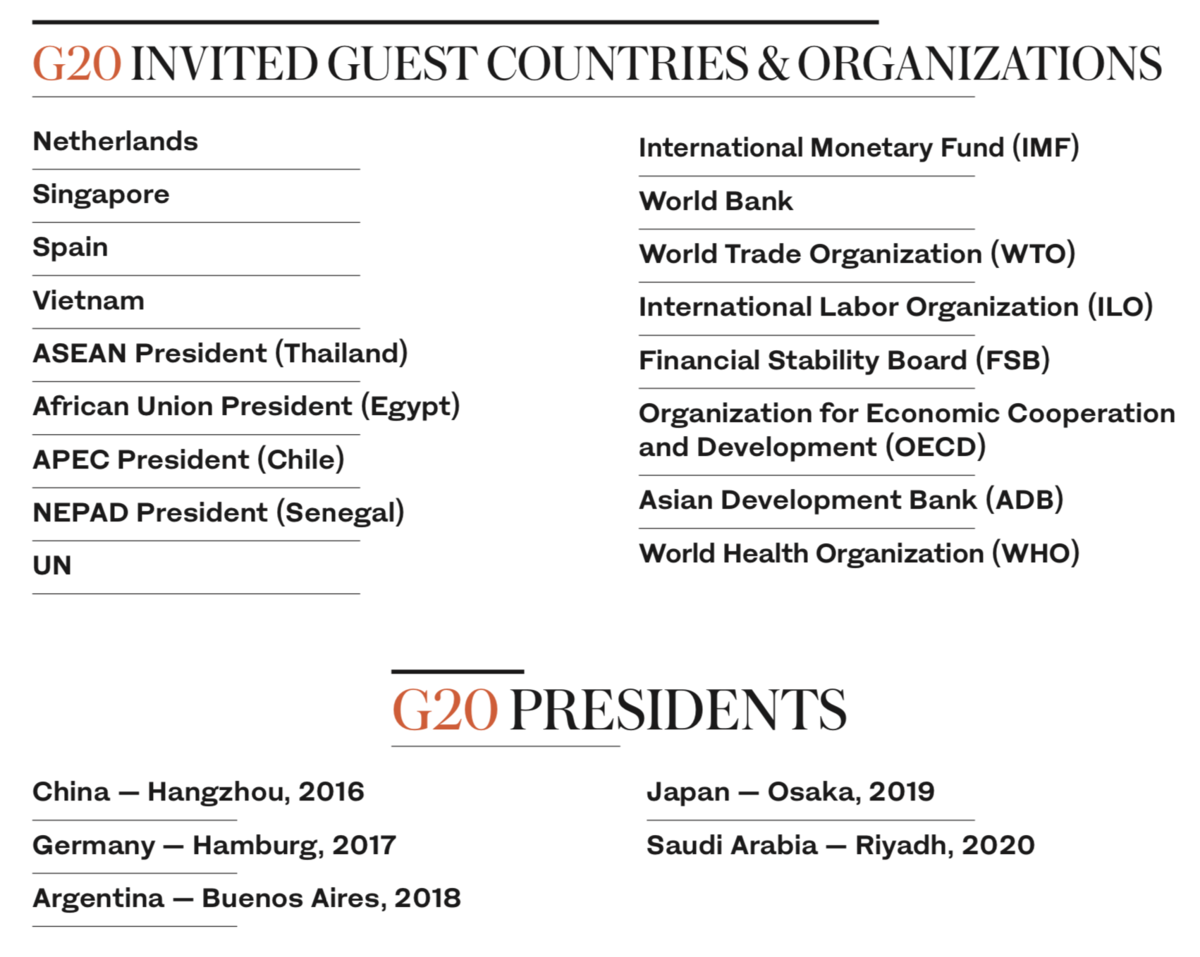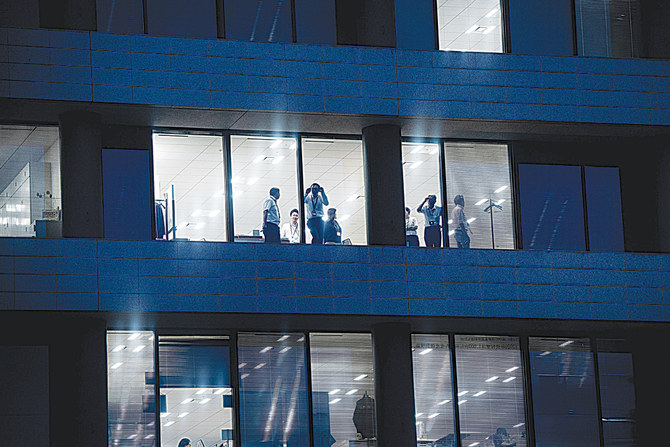JEDDAH: World leaders meeting in the Japanese city of Osaka for the 14th Group of Twenty (G20) summit will focus on issues concerning trade, demographics, the environment and the digital economy.
Japan’s third-largest city rolled out the red carpet for dignitaries attending the two-day forum on June 28-29.
Preparations had been underway for months for the event, which coincides with a heated US-China trade dispute as well as heightened tensions in the Gulf region, source of most of the world’s oil supplies.
The G20 summit has become the most anticipated global gathering since the club’s heads of state met in November 2008 to discuss the international financial crisis. Informal chats between leaders and bilateral sideline meetings will attract as much attention as the main proceedings.
Last month, policy recommendations developed by a Japanese task force were unveiled for consideration by the G20 leaders who are currently meeting in Osaka. They are intended to enable the member countries to implement the ambitious agenda set by Japan as the new G20 president.
The summit will focus broadly on four topics: Promoting strong, sustainable and balanced growth; greater provision of international public goods and resilience; digitalization of the economy; and aging populations.

Saudi Arabia’s Crown Prince Mohammed bin Salman arrives in Osaka to join world leaders attending the G20 summit. (AFP)
“Maintaining continuity and coherence with the previous discussion is very important,” Koji Tomita, the Japanese government’s representative to the G20 Summit, told Arab News, referring to last year’s meeting in the Argentine capital Buenos Aires.
“We believe Argentina did a great job on many points. Osaka will take place just six months after the Buenos Aires summit, so continuity will be more important than usual. We would like to point to two specific areas where we want to deepen the discussion that we had in Buenos Aires on trade.”
Tomita said that doubts about the benefits of globalization, which have been blamed for protectionist movements worldwide and the US-China tariff wars, will not be allowed to “hijack” the discussions in Osaka. However, reform of the World Trade Organization (WTO) will be high on the agenda.
Depending on global economic financial concerns, each chair country’s task force incorporates a combination of regional and global issues into the summit agenda. In the run-up to Osaka, ministerial-level meetings and conferences of eight engagement groups have produced a number of recommendations, policy briefs and communiques.
“WTO reform is an urgent task because if you look at the situation with the global economy, it is obvious that trade tensions are starting to weigh heavily on growth prospects,” Tomita said. “The issue goes straight to the heart of G20’s mission, which is to maintain sustainable growth.”
The summit will take place at Osaka’s International Exhibition Center, or Intex, on the city’s waterfront, while world leaders will be hosted in the city’s northern Umeda area.
Officials of Osaka prefecture explained to Arab News last month how they planned to accommodate the 30,000 members of 37 different delegations expected to descend on the city in the run-up to the summit.
All 13 five-star hotels in Osaka are expected to be filled to capacity, but this does not mean life in the city will grind to a halt. Authorities have increased public transport capacity to ensure that the streets are clear for VIP traffic during the summit.
G20 NUMBERS
• 20 - Permanent member states
• 17 Invited guest countries and organizations
• 6.4% - Saudi Arabia’s share of total G20 forex reserves
• 80% - G20 members’ share of global GDP
Takashi Harada, assistant secretary-general at the Japanese Ministry of Foreign Affairs and secretariat for the G20 Summit, said the organizers had three key objectives: Providing security for leaders taking part in the summit; ensuring a comfortable stay for visitors; and promoting Japan, particularly Osaka and the Kansai area, to an international audience.
“Osaka deserves to host the G20 meeting. It is a highly traditional city with a thousand-year history,” Harada said.
Osaka’s unique and diverse culture differs from that of Japan’s capital, Tokyo. In addition to being the capital of Japanese comedy and the country’s “kitchen,” Osaka is spearheading Japan’s transformation from a homogenous society to a diverse one. The city is the gateway to opening Japan to the world, Harada told Arab News.

Tomita said: “The G20 has a tradition of working in a troika. The present chair is assisted by the previous chair and the next chair.” This system was adopted at the G20 summit in Cannes, France, in 2011, with the three chairs working together to ease the transition process.
The G20 summit will be held in an Arab country for the first time in 2020, with Saudi Arabia as host — a decision that was announced at the end of the 2017 meeting in Hamburg and confirmed via the final communique in Buenos Aires.
The Riyadh summit’s agenda is expected to include financial to social issues. Saudi Arabia is due to unveil its taskforce later this year, after Japan’s presidency comes to an official end and the baton is passed to the Kingdom.
“Saudi Arabia is fully committed to the G20’s objectives and to the stability and prosperity of the international economic system,” said a statement published by the Saudi Press Agency in April.
Tomita said: “We have already been working with the Saudi and the Argentine teams, so the troika is a driving force behind the preparation for the summit in Osaka.
“I had the pleasure of traveling to Riyadh recently. I visited the secretariat for next year’s summit and, quite frankly, I was extremely impressed with the resources Saudi Arabia is investing in the preparation for the summit.”















